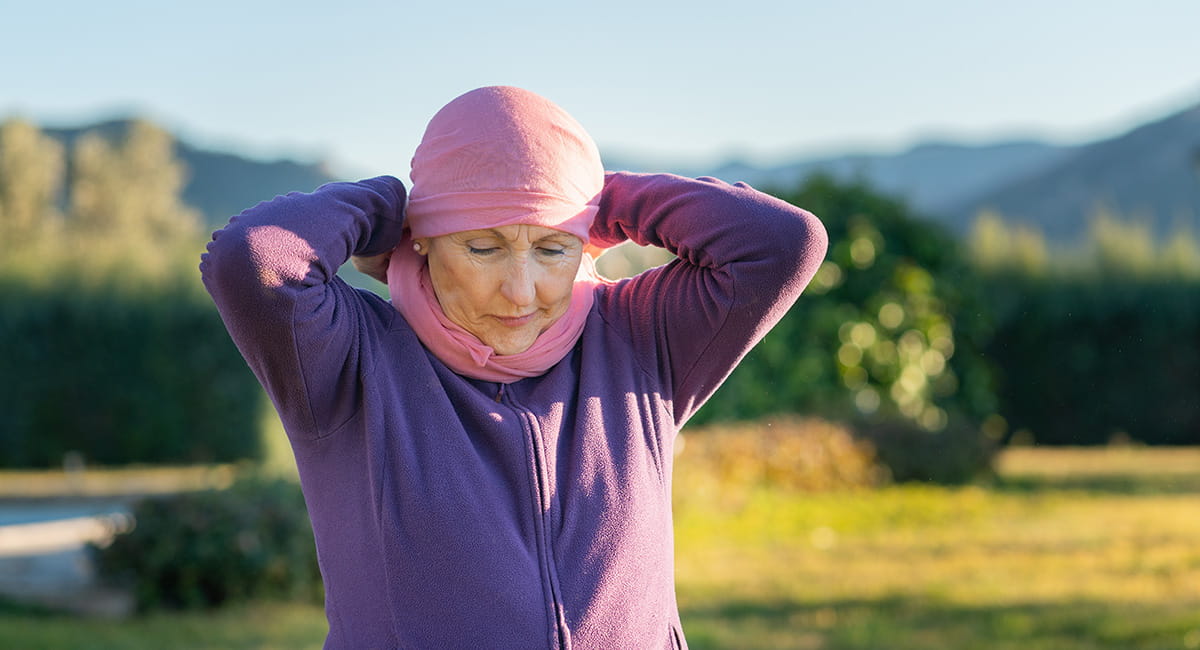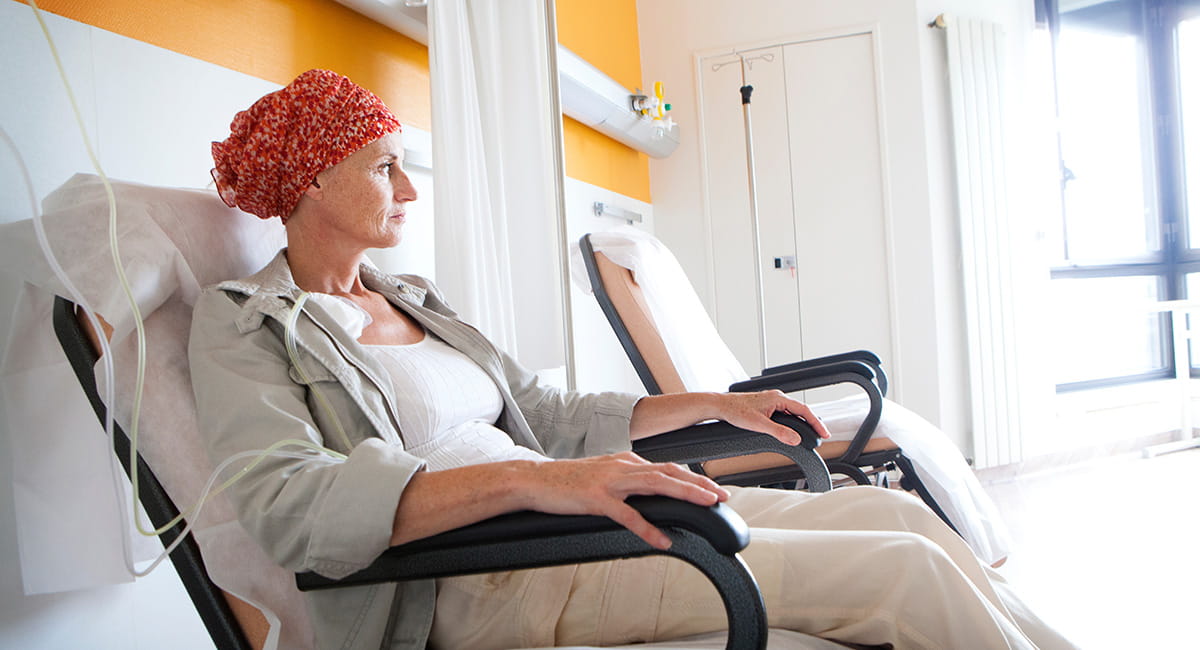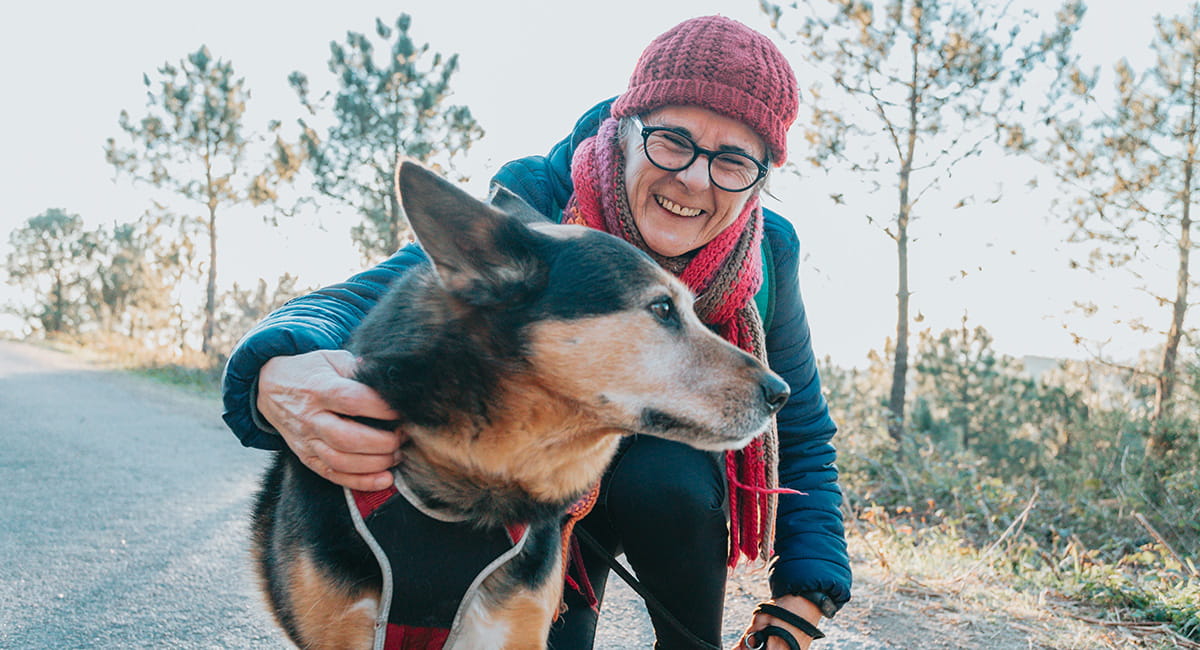“It’s really about focusing on the things that we can control: not smoking, avoiding too much exposure to UV, improving the quality of our diets, reducing our alcohol intake and being physically active can all make a big difference in terms of cancer risk .” Adjunct Associate Professor Craig Sinclair, Head of Prevention, Cancer Council Victoria
Key points
- About 40 percent of all cancers are related to behavioural factors. To minimise your risk, don’t smoke, avoid too much exposure to UV, drink within the health guidelines, follow a balanced diet and keep your weight in check.
- Cancer screening plays an important role in early diagnosis—which, in turn, can improve the success of any treatment. Talk to your health professional about your family history, and make sure you take part in relevant screening programs.
- If you have any concerns about possible symptoms or notice anything unusual, get checked out by your GP as soon as possible.
There’s an easy way to see just how rampant scare stories about cancer actually are. Log into a search engine and type in the name of an everyday household item—say, “shampoo”, “nail polish” or “apples”. Next, simply add the word “cancer” to your search and strike the return key. According to the wisdom of Dr Google, each of those totally innocuous things contains purported links to carcinogens.
It can be tricky to sort the fact from the fiction when it comes to cancer, so we went to some experts to find out exactly what we need to know about the disease.

Control the controllables
“We see new information coming out every day about this or that contributing to cancer,” says Adjunct Associate Professor Craig Sinclair, Head of Prevention at Cancer Council Victoria. “But what we have to do is look at where the evidence is really strong.”
And that evidence, he suggests, is far clearer on what we can do to minimise our risk. So, rather than get sidetracked by one isolated report about a possible cause of cancer, we should concentrate on the factors that have repeatedly been proven to be the biggest behavioural contributors to the disease.
“It’s really about focusing on the things that we can control: not smoking, avoiding too much exposure to UV, improving the quality of our diets, reducing our alcohol intake and being physically active can all make a big difference in terms of cancer risk,” says Craig.
The need to test
The reason it’s worth doubling down on these health risks is that of the 150,000 new cases of cancer that are diagnosed in Australia each year—a figure that amounts to around 400 cases per day—about 40 percent are related to such behavioural factors, according to the Australian Institute of Health and Welfare (AIHW).
If you don’t smoke, avoid too much sun, limit your alcohol intake, follow a balanced diet and keep your weight in check, then you can help to minimise your cancer threat.
But that’s not to say you’re out of the woods just yet. “The other area, which is really important, is being adequately screened for cancer,” explains Craig.
The AIHW shows that screening programs—such as the government’s population-level screening programs for breast cancer, bowel cancer and cervical cancer —can increase the likelihood of early detection of any cancer, which in turn helps to diagnose cancer earlier to support better results from cancer treatments.
In addition to taking part in population-level screening programs, it’s also important to consider your own family history. “For example, we know that those with a particular gene type have a much higher likelihood of developing breast cancer,” says Craig. “So if people think they're at a higher risk due to their family history, then it's really important that they undertake genetic testing to identify that risk, so they can be properly monitored at an early age.”
Get checked out

According to the AIHW, prostate cancer is the most common cancer diagnosed in Australia, followed by breast cancer, melanoma, bowel cancer (also known as colorectal cancer) and lung cancer. But even if there’s minimal history of cancer in your family, it’s important to get any nagging concerns checked by a medical expert.
“If you notice anything unusual, it's so important to see your doctor early,” insists Craig.
Whatever the outcome, getting checked out as quickly as a possible is a smart move for two reasons. If you discover you’ve got nothing to worry about, you’ll restore your peace of mind more quickly. But if your health professional does discover something that needs to be investigated, you’ll be able to tackle the problem at an earlier stage.
Stick to trusted sources
One thing to avoid, if you can? Looking up your symptoms online. Not only is Dr Google far less reliable than a medical professional, but online searching can also lead to a self-diagnosis that could fuel unnecessary anxiety.
If you’re determined to seek out secondary information, it’s important to make sure you go to a credible source. Craig recommends the national Cancer Council and its state and territory bodies (including Cancer Council Victoria and Cancer Council NSW), the Better Health Channel, the Cancer Institute NSW or Cancer Australia as trusted sources. “These are respected authorities, where you can be assured that the information you are getting is correct.”
But back to those carcinogens. If it seems that cancer is increasingly common, then this could simply reflect the increased longevity of modern society. While young people do occasionally get cancer, it remains a disease that becomes far more likely the older you get.
“The reason why incidences continue to grow is largely because, as a population, we are living longer,” says Craig. “One hundred and thirty years ago, the average age of life was 45, so people often died of other causes before they got cancer.”
Ultimately, cancer remains one of Australia’s most prevalent chronic conditions. But following the right advice and monitoring the most common behavioural contributors can help to minimise the risk to your health and wellbeing.

Cancer: the stats*
Number of cases: 150,000 cases per year
Most common cancers:
- Breast cancer: 20,030 cases per year
- Prostate cancer: 18,110 cases per year
- Melanoma: 16,878 cases per year
- Bowel cancer: 15,540 cases per year
- Lung cancer: 13,810 cases per year
- Bowel cancer: 41.6 percent
- Breast cancer: 48 percent
- Cervical cancer: 62 percent (estimate)
*as of 2022
Disclaimer: Information provided in this article is of a general nature. Australian Unity accepts no responsibility for the accuracy of any of the opinions, advice, representations or information contained in this publication. Readers should rely on their own advice and enquiries in making decisions affecting their own health, wellbeing or interest. Interviewee names and titles were accurate at the time of writing.


